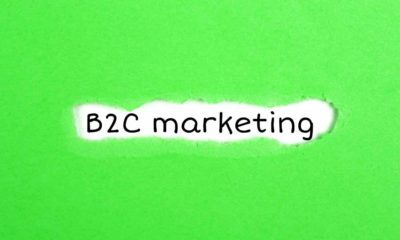Blog
What Is Marketing In Business?
If you asked a room full of CEO’s “what is the most important function in business?“, you would probably get a variety of answers. Some might say it’s sales, others might say production, and still, others might say it’s finance. But the answer is marketing. In fact, marketing is the most important function in business because, without it, you would have no customers or clients.
Think about it this way, sales are what bring in the revenue, but marketing is what creates the sales in the first place. Production might create the products or services you sell, but marketing is what tells people those products or services exist. Finance might be responsible for ensuring your business is profitable, but marketing is what drives top-line growth. In other words, marketing is the engine that powers all other functions in your business.
What Is Marketing?
Marketing is the process of creating value for a company through the creation and distribution of products or services. It is an important function in any business, as it is responsible for generating revenue and growth. There are many different facets to marketing, and it can be divided into four main categories also known as the 4Ps of Marketing: product, price, promotion, and place.
Product
The first step in any marketing plan is to determine what product or service you will be offering. This requires extensive market research to ensure that there is a need or want for your product. Once you have identified a need, you must then create a product that meets that need. This involves the research and development of your product, as well as testing to ensure that it is of high quality and meets all safety standards.
Price
After you have determined what product you will be offering, you must then set a price. Pricing must be done carefully, as it can have a big impact on demand. If your price is too high, customers may be unwilling to purchase your product. On the other hand, if your price is too low, you may not make enough profit to sustain your business. It is important to find a happy medium that maximizes revenue while still providing value to customers.
Promotion
Once you have determined what product you will be offering and have set a fair price, you must then promote your product. Promotion is responsible for creating awareness and interest in your product among potential customers. There are many different channels through which you can promote your product, such as advertising, public relations, social media, and events. It is important to select the channels that are most likely to reach your target market.
Place
After you have created awareness for your product through promotion, you must then make it available to customers through distribution. This requires careful planning to ensure that your product is available in the right places at the right time. The distribution also involves logistics, such as transportation and warehousing.
[Read More] Marketing vs Advertising: 10 Top Differences To Know
Benefits Of Marketing In Business
Marketing helps businesses achieve their goals by raising awareness of their products or services, generating interest among potential customers, and converting leads into sales. A well-executed marketing strategy will reach the right people at the right time with the right message. With that in mind, there are many benefits of marketing for businesses. Marketing helps businesses to:
- Build brand awareness: in order for people to buy from you, they need to know who you are. Marketing helps increase your build brand awareness so that potential customers become familiar with your business and its products and services. Brand awareness also helps to build trust, which is essential for closing sales.
- Generate leads: without marketing, businesses would have a much harder time generating leads and getting their products or services in front of potential customers. Marketing efforts help you to reach your target audience and get them interested in what you have to offer.
- Close sales: once you have generated leads, it’s important to close the sale. Marketing can help you to do this by providing information that helps potential customers make a buying decision. Effective marketing will also create a sense of urgency and encourage people to buy now rather than later.
The Importance of Marketing In Business
Marketing is so important because it’s the function that generates leads and drives sales. It’s also the function that builds brand awareness and shapes public perception. In short, marketing is responsible for creating customers and clients—and without customers and clients, your business would quickly go out of business.
Think about it this way, simply put, a lead is a person who has expressed an interest in your product or service. A sale is when that lead becomes a paying customer or client. Marketing generates leads through a variety of activities, such as advertising, public relations, content marketing, and search engine optimization (SEO). Once a lead has been generated, it’s then up to the sales team to turn that lead into a paying customer or client.
Types of Marketing
There are many different types of marketing, but they can generally be grouped into four main categories:
- Advertising: This includes paid placements in print, broadcast, and digital media. Advertising can be an effective way to reach a large audience quickly and generate more leads or sales. However, it can also be very expensive—particularly if you’re using traditional media like television or radio.
- Public Relations: This refers to activities like media relations, thought leadership, speaking engagements, and events. Public relations can be an effective way to build relationships with key influencers and generate positive press coverage for your company.
- Content Marketing: This encompasses everything from blog posts and articles to eBooks and white papers. Content marketing can be an effective way to attract leads and build credibility for your company.
- Search Engine Optimization (SEO): This refers to activities designed to improve your website’s organic search ranking on search engines like Google and Bing. SEO can be an effective way to generate leads from people who are actively searching for your products or services online.
[Read More] Affiliate Marketing: What Is It & How Does It Work
The Marketing Process
The marketing process typically consists of four distinct stages:
- Research: In this stage, companies conduct market research to identify opportunities and threats in their marketplace. This research helps them to understand what potential customers want and need. It also helps them to understand what their competition is doing.
- Planning: In this stage, companies develop a marketing plan. This plan outlines their goals and objectives and includes strategies for how they will reach those goals.
- Execution: In this stage, companies put their marketing plan into action. They develop creative campaigns, launch new products or services, and track their progress along the way.
- Evaluation: In this stage, companies assess their results and make changes to their marketing plan as needed. This stage is important because it allows companies to learn from their mistakes and make necessary adjustments going forward.
8 Tips To Improve Your Businesses’ Marketing
1. Define your target audience
The first step to improving your marketing is to define your target audience. Who are you trying to reach with your marketing efforts? What are their needs and wants? Once you have a good understanding of your target audience, you can begin to create marketing campaigns that are tailored to them.
2. Know your competition
It’s also important to know who your competition is and what they are doing to reach their target markets. Keeping tabs on your competitors will give you a good idea of what’s working well for them and what isn’t. You can then use this information to fine-tune your own marketing efforts.
3. Make sure your message is clear
Your marketing message should be clear and concise. It should be easy for your target market to understand what you’re trying to say. If your message is too complicated or confusing, it will likely fall on deaf ears.
4. Create a strong brand
A strong brand is one of the most important elements of successful marketing. Your brand should be memorable and unique, and it should portray the message that you want to deliver to your target audience. If your brand is strong, it will help you to stand out from the competition and attract more customers.
5. Use the right mix of marketing channels
There are a variety of marketing channels available, and it’s important to use the right mix in order to reach your target market effectively. Some popular channels include television, radio, print advertisements, online advertising, and social media.
6. Use data-driven marketing
Data-driven marketing is an approach that relies on data and analytics to make decisions about marketing campaigns. This approach can help you to save money and time by targeting only those consumers who are most likely to be interested in your product or service.
7. Measure your results
It’s important to measure the results of your marketing campaigns so that you can determine what’s working and what isn’t. By tracking key metrics such as website traffic, leads generated, and sales made, you can get a good idea of which campaigns are most effective and make necessary adjustments accordingly.
Consider hiring a marketing agency
Finally, if you don’t have the time or resources to handle your marketing efforts yourself, consider hiring a professional marketing agency. A good digital marketing agency will have a team of experienced professionals who can help you to create an effective marketing strategy and execute it successfully.
Bottom Line
Marketing is essential for businesses of all sizes. It helps businesses generate leads, build brand equity, drive sales, and foster customer loyalty. To be effective, marketing must be strategic and align with the overall business strategy.
It starts with understanding who the customer is and what they need or want before developing an effective mix of product, price, place, and promotion communications channels to reach them where they are most likely receptive to the message.
Brett Heimann is a marketing & advertising professional with 10 years of experience. He's the founder of MarketingAgency.com and contributes to other publications such as; Entrepreneur, Thrive Global, and StockMarket.com. His passion for digital marketing began after graduating with a B.S.B.A in business administration and finance in 2013. After completing college, he went on to become an entrepreneur in the marketing and finance space. Brett loves the ability to deliver to his readers engaging and educational content that can be easily consumed by the reader. He enjoys writing about a wide variety of marketing topics such as; Search Engine Optimization (SEO), Paid Advertising (PPC), E-Commerce, and Lead Generation For SMBs to name a few. Brett, a South Florida native, enjoys spending time with his wife and two sons outdoors and is a big basketball and MMA fan.



















